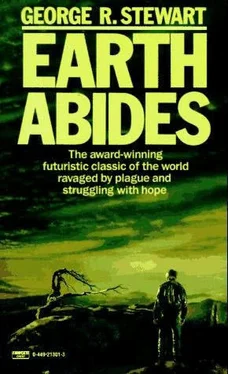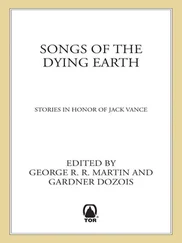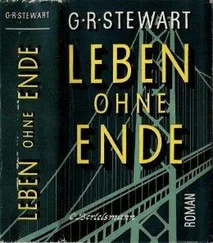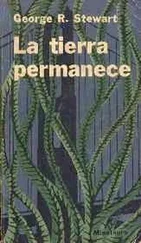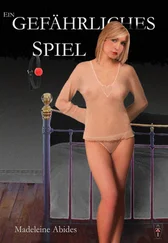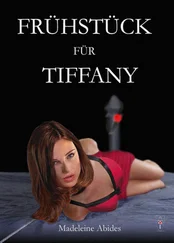But at least they all seemed to be relieved, now that the inheritance of the hammer was settled, and they did not bother Ish any more.
He rested there quietly then, as if he had done all in this world that he needed to do, and had made his peace. He was dying on the bridge, and he knew it now. Many others, he remembered, had died on that bridge. He might have died there many years before in some mere crash of automobiles. Now he had lived clear out of his own world, and still he was dying there. One way or another, he now was contented. He half-remembered a line which he had read in some book at some time during all those years when he had read so many books. “Men go and come…” But that was trite and meaningless without its other half.
He looked now at the others, although there was a little mist before his eyes and he could not see very well. Yet he noticed the two dogs lying quietly, and the four young men—three of them apart from the other one now—who squatted on the bridge in a half circle around him, watching. They were very young in age, at least by comparison with him, and in the cycle of mankind they were many thousands of years younger than he. He was the last of the old; they were the first of the new. But whether the new would follow the course which the old had followed, that he did not know, and now at last he was almost certain that he did not even desire that the cycle should be repeated. He suddenly thought of all that had gone to build civilization—of slavery and conquest and war and oppression.
But now he looked beyond the young men, toward the bridge itself. Now that he would soon be dead, he felt himself more a companion of the bridge than of the men. It too had been part of civilization.
A little distance off, he was surprised to see a car standing, or what was left of a car. Then he remembered the little coupé which had been parked there during all those years. Now the paint had weathered off almost entirely; not only were the tires flat but also the springs had grown weak, so that the whole car had settled downwards. All its upper parts were white with bird-droppings. Curiously, although it was a matter of no importance, he could still remember that the owner of the car had been John Robertson (with a middle initial which was E. or T. or P., or something like that) and that he had lived on one of the numbered streets in Oakland.
But Ish let his gaze rest upon the little coup only for a moment. Then his eyes moved higher, and he saw the tall towers and the great cables, still dipping in perfect curves. This part of the bridge seemed to be in a good state of preservation. It would apparently stand for a long time still, perhaps during the lives of many generations of men. The railings, the towers, and the cables—all were rusted red. But he knew that that rust must be superficial. The tops of the towers, however, were not red, but were shining white with the droppings of generations of seagulls.
Yet though the bridge might last still for many years, the rust would eat deeper and deeper. The earthquake would shake the foundations, and then on some stormy day a span would go down. Like the man, so the creation of man would not last forever.
He shut his eyes for a moment, and imagined the whole sweep of the hills around the bay, though he could not turn his head to see them. They had not changed their profile since the destruction of civilization; as measured by man’s time, they would not change. As far as the bay and the hills went, he was still dying in the same world to which he had been born.
Opening his eyes, he now looked and was able to see the two pointed peaks at the crest of the ridge. “Twin Breasts” they had once been called, and the sight of them made him think of Em, and even further back, of his own mother. The earth and Em and the mother all mingled in his dying mind, and he felt glad to return.
“But, no,” he thought, after a moment, “I must die as I have lived—by the light of my own mind, by what light it gives me. Those hills, though they may take the shape of breasts, they are not like Em or like my mother. They will receive me—they will receive my body—but they will not love me. They do not care. And also I am one who has studied the ways of the earth, and I know that the hills themselves, though men call them eternal—they too are changing always.”
Yet as a weary and dying old man, he needed something toward which he could look and from which he could expect no change. He was cold now around the waist, and his fingers were numb. His sight was fading.
He fixed his eyes on the distant hills. He had tried very hard. He had struggled. He had looked to the past and to the future. What did it matter? What had he accomplished?
Now certainly it made no difference. He would rest, and he would return to the hills. And they—in comparison at least with the passing of man’s generations—remained without changing. And if the shape of the hills was like the shape of a woman’s breasts, perhaps that too was not without its meaning and comfort.
Then, though his sight was now very dim, he looked again at the young men. “They will commit me to the earth,” he thought. “Yet I also commit them to the earth. There is nothing else by which men live. Men go and come, but earth abides. ”
